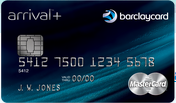Frequent flyer reward programs are entering a new and unprecedented era that leaves my fellow travel bloggers and I concerned about the impending future of the travel rewards industry. Airlines have struggled for decades to turn a profit in the airline industry with soaring fuel prices, strong competition from budget carriers, and the growth of technology that needs to constantly be implemented into the airlines’ programs and systems every couple of years. Airlines have managed to snub the trend by charging for checked bags, airplane meals, priority boarding, change/cancellation fees, and now diminishing the loyalty programs that allow travelers to fly for free or at a discounted rate to reap in record profits.
Some of you might say, “well why should the airlines have to honor all those credit card churners and points earners who don’t spend their money on flying with an airline, rather just redeem their points for free flights?” The airlines get compensated by the credit card companies for the points they award to their customers, and we all know the credit card companies are making lucrative amounts of money if they’re willing to offer tens of thousands of points to customers who apply for their cards and meet their sign up bonuses. It’s obvious that the airlines cost of acquisition for new customers is a lot higher than maintaining loyal customers who aren’t likely to switch out of a program that they already have elite status and thousands of points with. The airlines are trying to stay competitive as they continue to merge with one another and turn profits that were never before conceivable in the airline industry. Devaluing loyalty programs is just another one of their profit boosting methods and we will surely see sweeping changes across the airline industry over the next couple of years.
How does our credit card strategy change?
Until reward programs further devalue their points similar to what Delta has done recently, I will continue to collect, earn, and spend Chase Ultimate Rewards, American Express Membership Rewards, and Starwood Preferred Guest points as their value is still at a very high level. I’m starting to consolidate my points in airlines that employ distance-based award charts and shift my strategy to include credit cards that I may not have considered in the past.
I believe that credit cards such as the Barclaycard Arrival Plus™ World Elite MasterCard®, both the annual fee and no annual fee cards, that have increased award earning potential with the annual fee card at 2x points per dollar spent will be the new standard in credit card reward earnings for travel. The 40,000 point sign up bonus, coupled with the 10% points rebate on points redeemed, and the high-earning potential, this card can be used to pay for any travel you book with a statement credit. Instead of accruing tens of thousands of points to maybe find a redeemable flight somewhere, the Arrival Card gives you the flexibility to book any flight, cruise, hotel, or rental car you want and not have to worry about blackout dates, lack of award availability, or the continued devaluation of a points program.
I’m not saying I’ve completely lost faith or trust in the airline or credit card reward programs going forward, I just like to plan ahead and proceed cautiously knowing my alternate options to compensate for the loss of perks and rewards we’re accustomed to. I plan on getting the Barclaycard Arrival Plus™ World Elite MasterCard® in my next round of applications and would love to have more options and flexibility for travel expenses that can’t be redeemed with airline or hotel points.
Barclaycard Arrival Plus™ World Elite MasterCard® |
|
| Intro APR | Regular APR | Annual Fee | Balance Transfer | More Details |
| N/A* | 14.99% or 18.99%* (Variable) | $89 – Waived first year | 14.99% or 18.99%* (Variable) |


